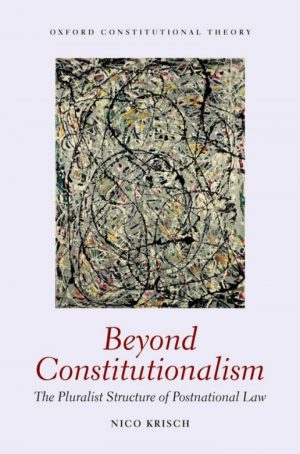The Anthropology of Law
$18.85
Attention: This is just ebook, Access Codes or any other Supplements excluded! / File Delivery: Sent Via Email within 24 hours!
SKU: 521675103b6b
Category: Law Textbooks
Description
-
Author(s)Fernanda Pirie
-
PublisherOUP Oxford
-
FormatPDF
-
Print ISBN
9780199696840, 0199696845 -
eText ISBN
9780199696840, 0199696845 -
Edition
-
Copyright
- Details
Questions about the nature of law, its relationship with custom, and the form of legal rules, categories and claims, are placed at the centre of this challenging, yet accessible, introduction. Anthropology of law is presented as a distinctive subject within the broader field of legal anthropology, suggesting new avenues of inquiry for the anthropologist, while also bringing empirical studies within the ambit of legal scholarship. The Anthropology of Law considers contemporary debates on human rights, international laws, and new forms of property alongside ethnographic studies of order and conflict resolution. It also delves into the rich corpus of texts and codes studied by legal historians, classicists and orientalists: the great legal systems of ancient China, India, and the Islamic world, unjustly neglected by anthropologists, are examined alongside forms of law created on their peripheries. Ancient codes, medieval coutumes, village constitutions, and tribal laws provide rich empirical detail for the authors analysis of the cross-cultural importance of the form of law, as text or rule, and carefully-selected examples shed new light upon the interrelations and distinctions between laws, custom, and justice. Legalism is taken as the starting point for inquiry into the nature and functions of law, and its roles as an instrument of government, a subject of scholarship, and an assertion of moral order. An argument unfolds concerning the tensions between legalistic thought and argument, and the ideological or aspirational claims to embody justice, morality, and religious truth, which lie at the heart of what we think of as law.
Related products
-

Constitutional Adjudication in Africa 1st Edition
Rated 0 out of 5$45.50 Add to cart -

BEYOND CONSTITUTIONALISM OCON C The Pluralist Structure of Postnational Law
Rated 0 out of 5$22.10 Add to cart -

A Casebook on Roman Family Law
Rated 0 out of 5$28.60 Add to cart -

Constituting Economic and Social Rights
Rated 0 out of 5$17.88 Add to cart

